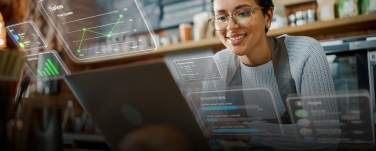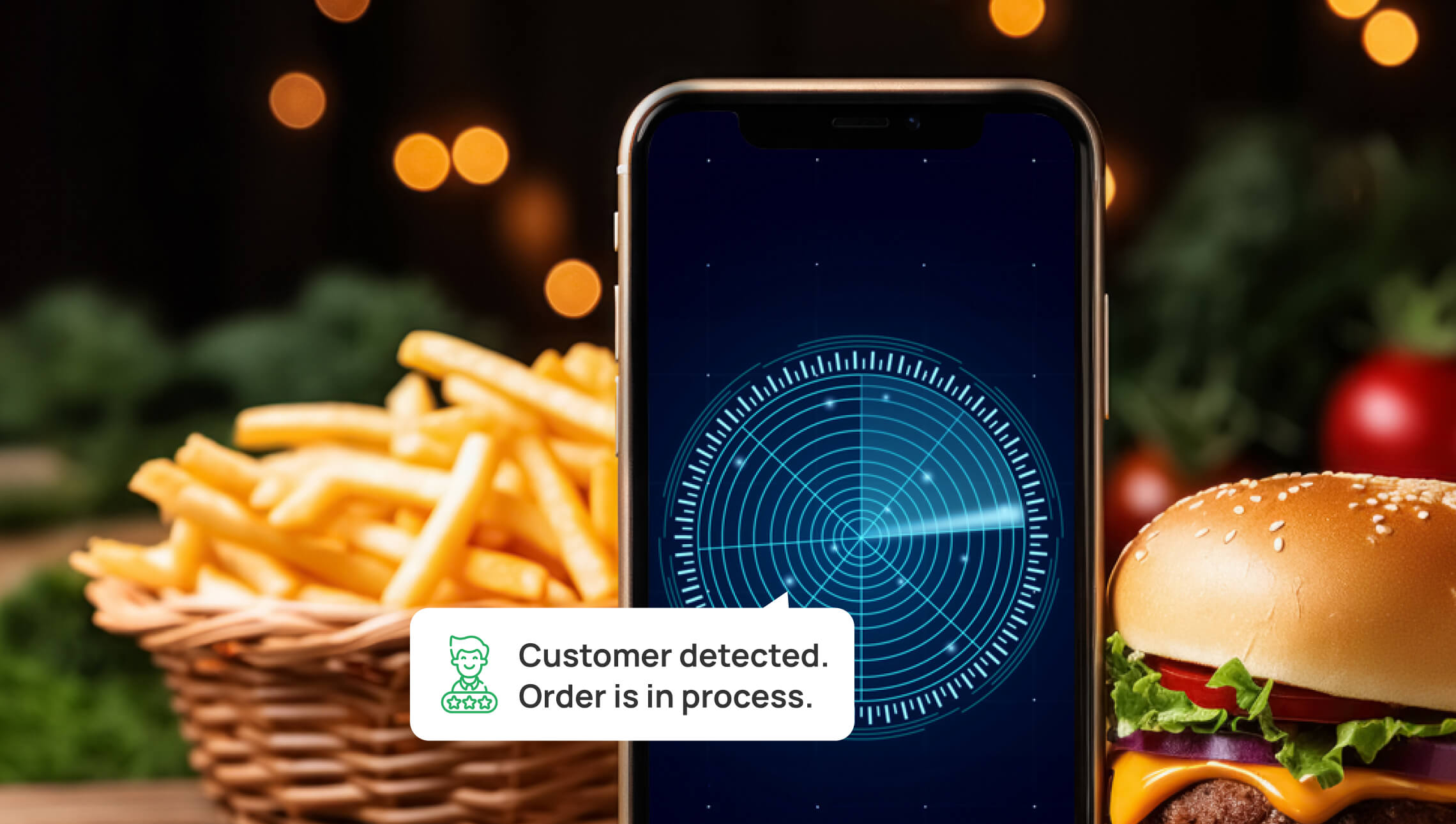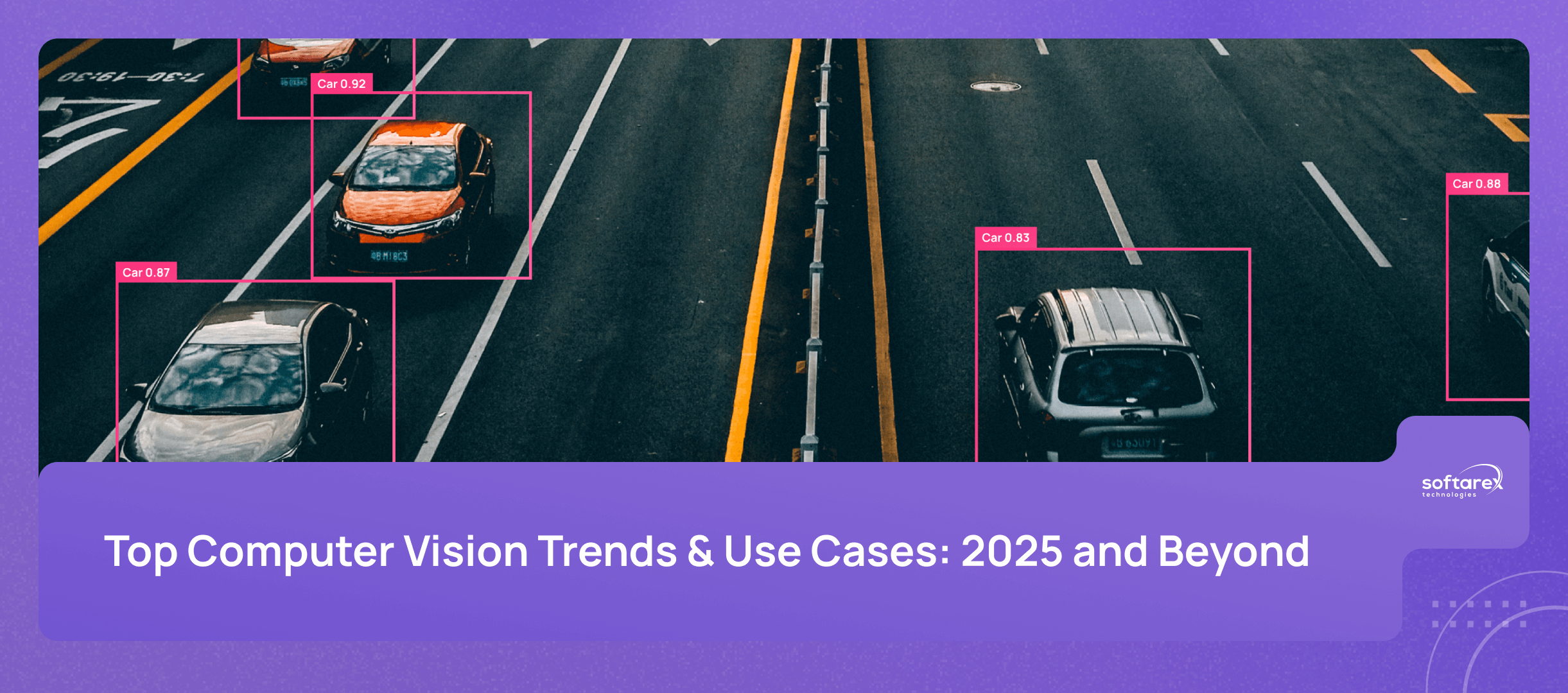Although quick-service restaurants are jumping through hoops to get back on the pre-pandemic trail, this goal still remains somewhat of a pipe dream. Over the last couple of years QSRs lost a lion’s share of customer traffic. At drive-thru the numbers fell by 12 percent, the takeout sector lost around 36 percent of guests, and the dine-in segment experienced a shocking 47 percent decline. This decline has driven the industry to embrace technologies like Geofencing and AI to better understand customer behavior and improve engagement.
In a world where having the best burgers in town is not nearly enough, brands are looking for new creative and innovative ways to engage clients and keep them coming back. And their efforts go far beyond loyalty program updates. Understanding they have to “earn” each next visit, QSRs are putting their chips on technology and investing in the latest trends.
Geofencing
One of the ways for QSRs to boost loyalty is by exploring the capabilities of geofencing as part of mobile app functionality. With this feature, brands can get access to yet another valuable type of customer data—geographic location. Geofencing enables restaurants to know where their customers are at a given moment, helping brands revamp pickup—a second popular sales channel used by 48 percent of modern-day diners.
And the first way for restaurants to do it is to reduce wait times. Diners demand fast food to be fast, with 49 percent of them claiming they’d prefer pickup over delivery if the restaurant could provide a special no-wait pickup line. Gladly, with geofencing it is quite feasible.
When a customer places an order and agrees to share the location, the app begins tracking their whereabouts. As the diner approaches a predefined boundary near the restaurant, the staff receives an alert. This allows them to estimate the customer’s arrival and finish the order just in time. Not only this reduces wait times but also ensures the proper temperature of food which customers rank as the third most important aspect of mobile ordering experience. Geofencing technology has proven particularly effective in achieving these operational improvements.
QSR industry leaders are already reaping the benefits of geofencing. Chick-fil-A, for example, tested the new feature and found that wait times got 1-2 minutes shorter and estimated wait times were accurate in 90 percent of cases.
McDonald’s, in turn, has seen a 62-second reduction in wait times and a “significantly higher customer satisfaction score”. Driven by this success, the burger giant is planning to expand the adoption of geofencing across its top 6 markets by 2025.
AI-Powered Drive-Thru
Another area brands are digitizing for greater customer loyalty is drive-thru. And it makes perfect sense. Drive-thru is not just one of many purchasing points at quick-service restaurants. According to stats, this is where 70 percent of all fast-food sales are made.
The latest trend in drive-thru digital transformation is custom voice assistants enabled by generative AI—the very smart technology that made ChatGPT so chatty. Trained on vast volumes of human speech samples, such solutions are able to understand various dialects and accents, generate responses and consult customers on the menu.
They are also no strangers to operating “under extreme conditions” such as background music and children crying in the backseat. AI voice assistants can cut through the noise of extraneous sounds and focus solely on the customer placing an order.
Additionally, you can “teach” your bot to speak the same language with customers like Wendy’s did. Apart from the official names of menu items, the chain’s chatbot FreshAI understands unique slang terms and phrases customers use when placing orders like “JBC” for junior bacon cheeseburger, or “biggie bags” for various meal deals.
Bots are, however, not fully automatic yet. They rely on human workers to check the accuracy of orders. There may be mistakes at the beginning since AI is a technology literally learning on the job.
Nevertheless, custom voice assistants are probably one of the hottest trends in the QSR industry. They are already taking orders at most major QSRs, demonstrating astonishing results. For example, some of the industry leaders experienced considerable reductions in the average total drive-thru time. Carl’s Jr. service got faster by 43 seconds, Chick-fil-A’s by 73, and Wendy’s by a whole 88.
As in the quick-service industry time really is money, by introducing AI into drive-thru ordering brands can also get substantial monetary profits. By cutting 5 seconds off of service, a location can earn $8,200 in the long run.
AI-Driven Personalization
Currently, about 7 out of 10 restaurants analyze POS data to learn who their diners are and what they like. And AI allows them to get the most out of it. Brands can take a deep dive into customer order history, behavior and preferences and consequently create more personalized experiences, while boosting loyalty and encouraging repeat business.
A pancake chain IHOP, for example, is already exploring AI’s advanced data analytics capabilities to offer personalized menu recommendations to online customers. Based on what a diner has already added to the cart, the brand’s AI engine suggests 6 additional items that would go well with the rest of the order.
The new feature turned out to be a hit among customers. 73 percent of diners got tempted by tailored recommendations and added handpicked items to the cart. As a result, IHOP’s digital check average jumped by 10-15 percent since the innovation was implemented.
But the pancake franchise isn’t the only restaurant brand leveraging the power of AI for greater personalization. Chipotle, for example, has also furnished its mobile app with a suggestive upsell feature, generating personalized offers based on data gathered from its loyal member database.
Yum Brands is at the forefront of the AI adoption wave too. With a $21 million tech investment last year in “digital, technology, and innovation capabilities”, the company is extending AI to customer interactions with an aim to enhance loyalty and boost digital sales.
About Softarex
With 23 years of experience in software development and a proven track record of restaurant projects, Softarex knows how to leverage AI, Geofencing, and other latest tech trends for greater customer experience and brand loyalty.
Our team is seasoned experts in Artificial intelligence, Machine learning, Computer vision, and Predictive analytics. They will help you shape your idea into a cutting-edge tangible solution bringing benefits both to your business and customers.
Feel free to reach out to us if you have a project in mind or need assistance figuring out a digital transformation strategy.
To explore comprehensive strategies for implementing artificial intelligence solutions in restaurant operations, download our detailed eBook, Transform Your Restaurant with AI-Powered Solutions. This resource examines practical AI applications, implementation frameworks, and emerging technologies that are revolutionizing restaurant management, customer experience, and operational efficiency.









